
Wall Skeleton Skull Smoking Five Cigarettes Stock Illustration 82741861 Shutterstock
Van Gogh may also have been influenced by one of his own countrymen, the 17th century Dutch artist, Hercules Segers, who also produced a disturbing work of a skull. It remains uncertain whether Van Gogh was aware of Segers' works, but he did, of course, have a thorough knowledge of Dutch painters throughout the 17th to 19th centuries.

Premium Vector Skull smoked cigarette illustration
The Skull of a Skeleton with Burning Cigarette is probably Van Gogh's most distinguished painting from the Antwerp period. When we look at the social and emotional circumstances prevalent in van Gogh's life when he painted Skull of a Skeleton with Burning Cigarette, it is easy to connect the dots, so to say, as to why he painted it.There are possibly several converging reasons that.
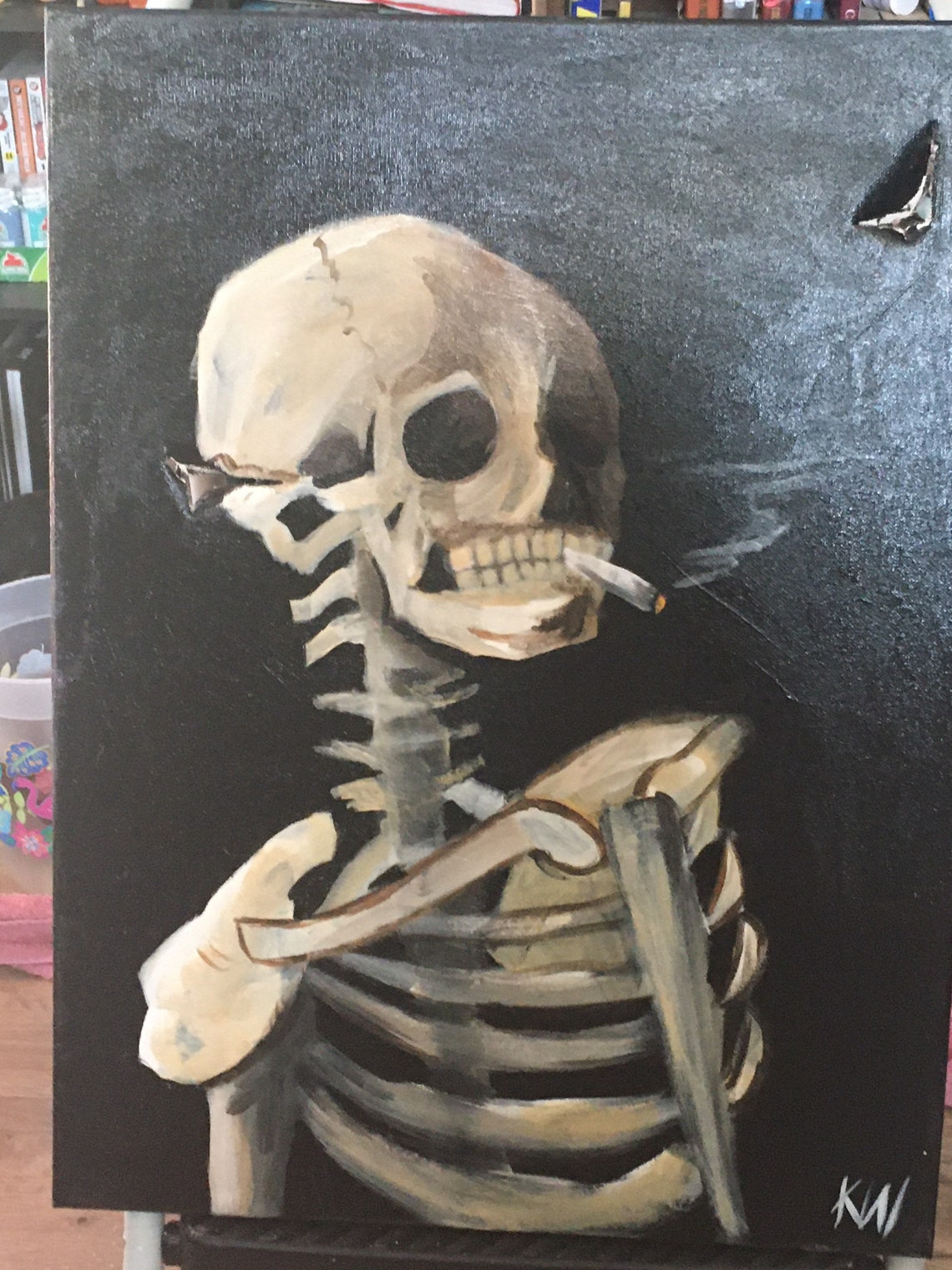
24x18 Van Gogh smoking skeleton Impressionism painting famous Etsy
Skull of a Skeleton with Burning Cigarette is an early work by Vincent van Gogh. The small and undated oil-on-canvas painting featuring a skeleton and cigarette is part of the permanent collection of the Van Gogh Museum in Amsterdam. Share: Judge Artwork View all 16 Artworks.

Skeleton hand holding cigarette and relax illustration Premium Vector
Van Gogh's Skeleton Smoking is an oil on canvas medium painting. When you take a look at the painting you can see that the artist has used the impasto technique along with the effects of chiaroscuro. Van Gogh's Skeleton Smoking is also considered as vanitas by many art critics and viewers.

Skull Of A Skeleton With Burning Cigarette Smoking PNG, Clipart, Art, Artwork, Black And White
In van Gogh's Skull with Burning Cigarette, the skull is symbolic of death, which is often associated with smoking. The burning cigarette represents the transience of life, and the smoke rising from it may represent the soul leaving the body. The skull may also represent van Gogh's own mortality, as he was a heavy smoker himself.

Skeleton Smoking Cigarettes Stock Image Image of drugs, growing 112287471
Skull of a Skeleton with Burning Cigarette is in many ways the key Antwerp picture. Van Gogh was mocking the procedure in drawing classes, where a skeleton invariably served as the basis of anatomical studies, considered by the teachers to be the artist's indispensable aid in figuring out physical proportions and anatomical structure. The.

Smoking skull stock illustration. Image of representation 50735023
Skull of a Skeleton with Burning Cigarette (Dutch: Kop van een skelet met brandende sigaret) is an early work by Vincent van Gogh. The small and undated oil-on-canvas painting featuring a skeleton and cigarette is part of the permanent collection of the Van Gogh Museum in Amsterdam.

"Vincent van Gogh Skull of a Skeleton with Burning Cigarette mosaic art deco effect
Skull of a Skeleton Smoking a Cigarette was painted by Van Gogh while he was studying at the Academy of Fine Arts in Belgium. Many believe that this was painted as a joke, a satirical image that allowed the artist to practice his knowledge of the human form. The skeleton is not painted as something horrific, but much more lighthearted.
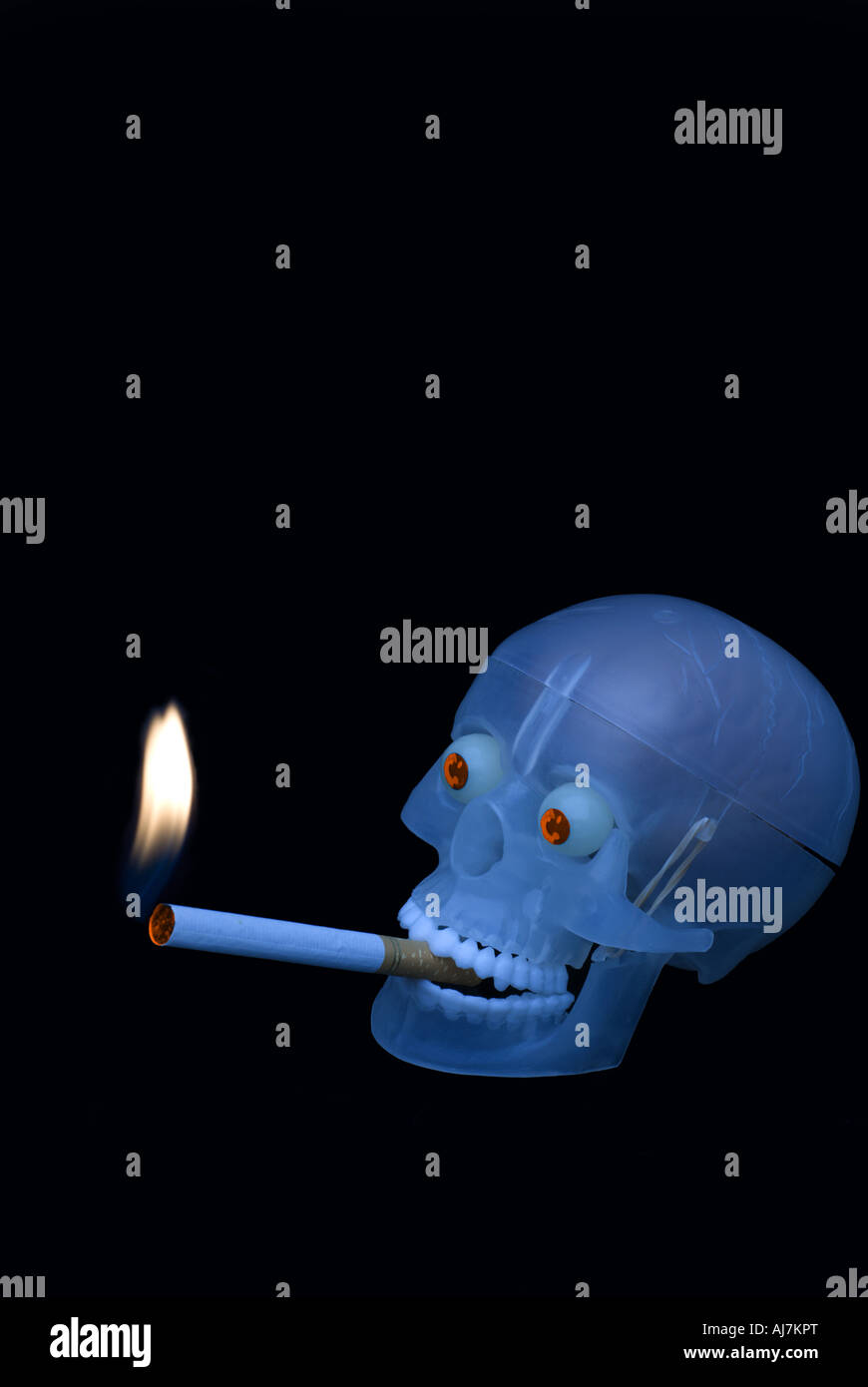
Toy skeleton skull with cigarette and flame conceptual image Stock Photo Alamy
Head of a Skeleton with a Burning Cigarette is an Oil on Canvas Painting created by Vincent Van Gogh from c.1885 to 1886. It lives at the Van Gogh Museum in Netherlands. The image is in the Public Domain, and tagged Skulls, Smoking and Vanitas. Download See Head of a Skeleton with a Burning Cigarette in the Kaleidoscope

Cigarette smoke forming a skull, symbolic image of death from smoking, smoking endangers the
'Skull of a Skeleton with Burning Cigarette' was created in 1886 by Vincent van Gogh in Post-Impressionism style. Find more prominent pieces of vanitas at Wikiart.org - best visual art database.

skull smoking cigarette 1958005 Vector Art at Vecteezy
Skull of a Skeleton with Burning Cigarette (1886) by Vincent van Gogh on display at the Van Gogh Museum in Amsterdam; Vincent van Gogh, CC BY-SA 2.0, via Wikimedia Commons. His interest in researching human anatomy, as well as his desire to better his grasp of the human form, was most likely what motivated Van Gogh's skull painting.
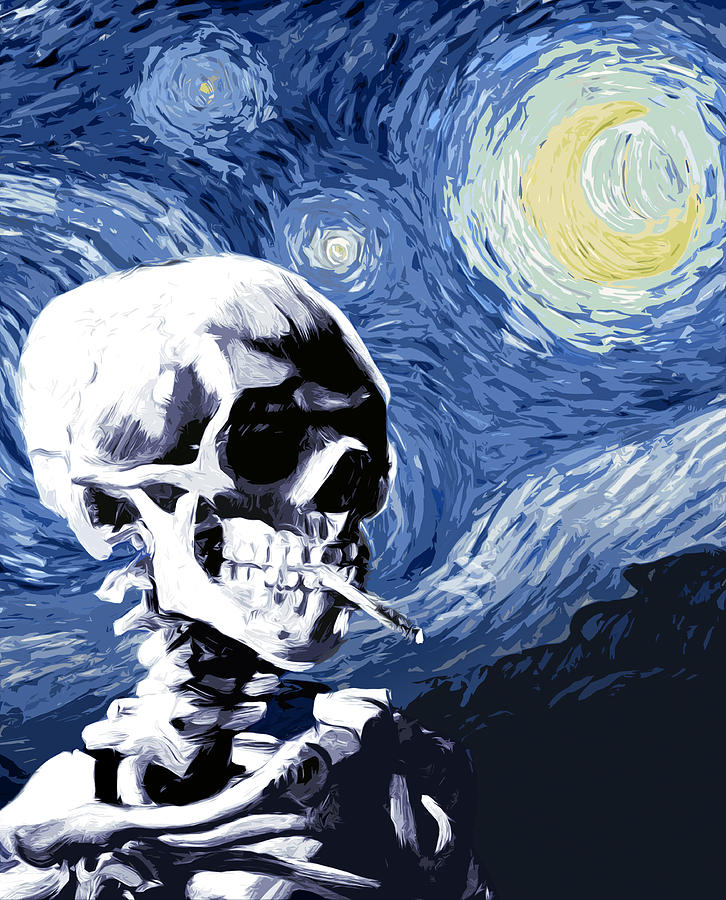
Skull with burning cigarette on a Starry Night Digital Art by Filippo B Pixels
"Skull of a Skeleton with Burning Cigarette" shows us, the viewers that, yes, Vincent van Gogh was also a human being with an inner jokester - albeit a dark jokester, a jokester, nonetheless. We can even imagine the artist having a slight chuckle to himself while painting this. We might even wonder what it would be like to have the.

"Vincent Van Gogh "Skull of a Skeleton with Burning Cigarette" " Poster for Sale by
This skeleton with a lit cigarette in its mouth is a juvenile joke. Van Gogh painted it in early 1886, while studying at the art academy in Antwerp. The painting shows that he had a good command of anatomy. Drawing skeletons was a standard exercise at the academy, but painting them was not part of the curriculum.
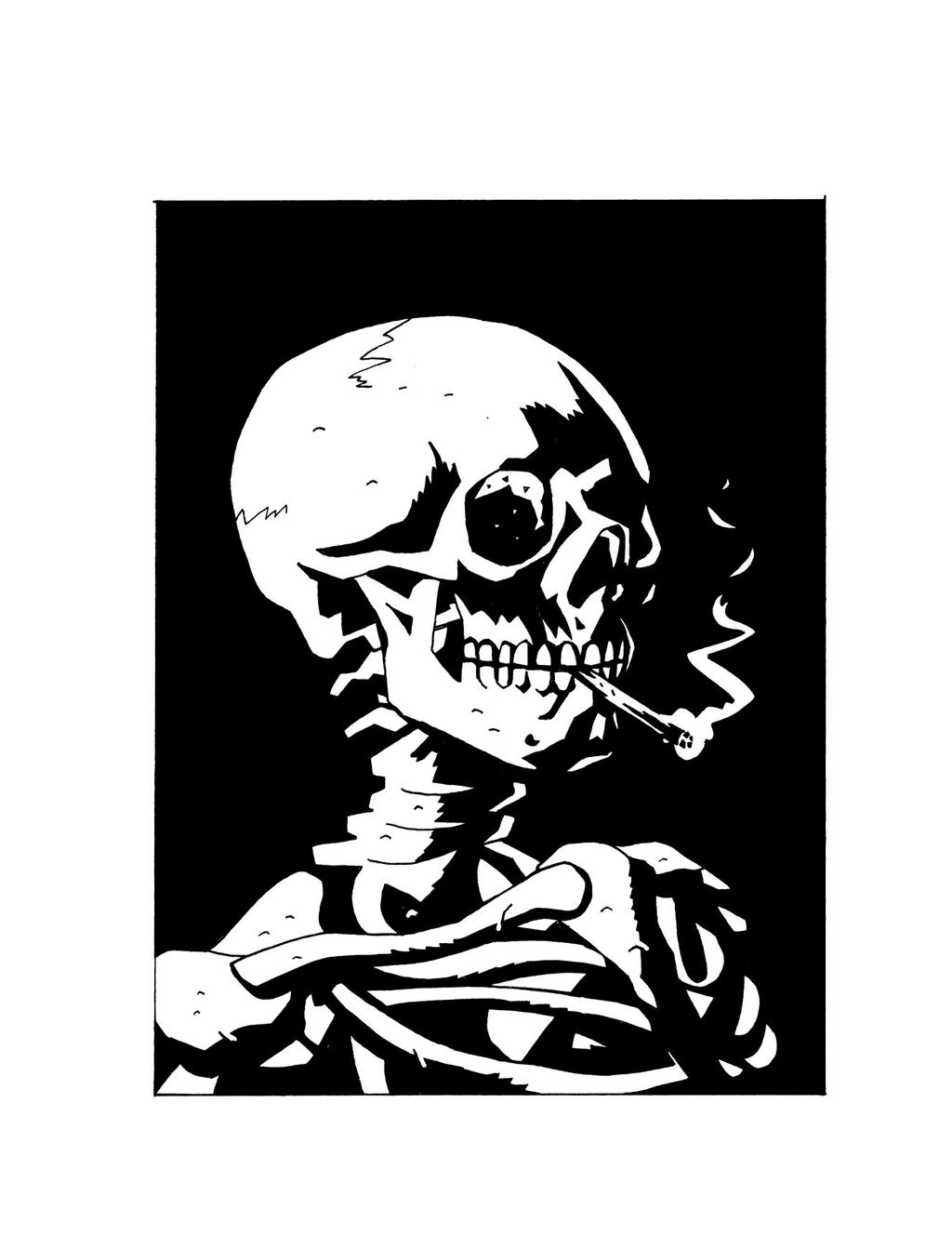
Skull of a Skeleton with Burning Cigarette by futureparker on DeviantArt
Vincent van Gogh's Skull of a Skeleton with Burning Cigarette is an oil on canvas (12-1/2x9-1/2 inches) housed in the Van Gogh Museum in Amsterdam. Vincent van Gogh painted Skull of a Skeleton with Burning Cigarette from 1885 to 1886. The painting was created while van Gogh was a student at the Académie Royale des Beaux-Arts in Antwerp, Belgium.
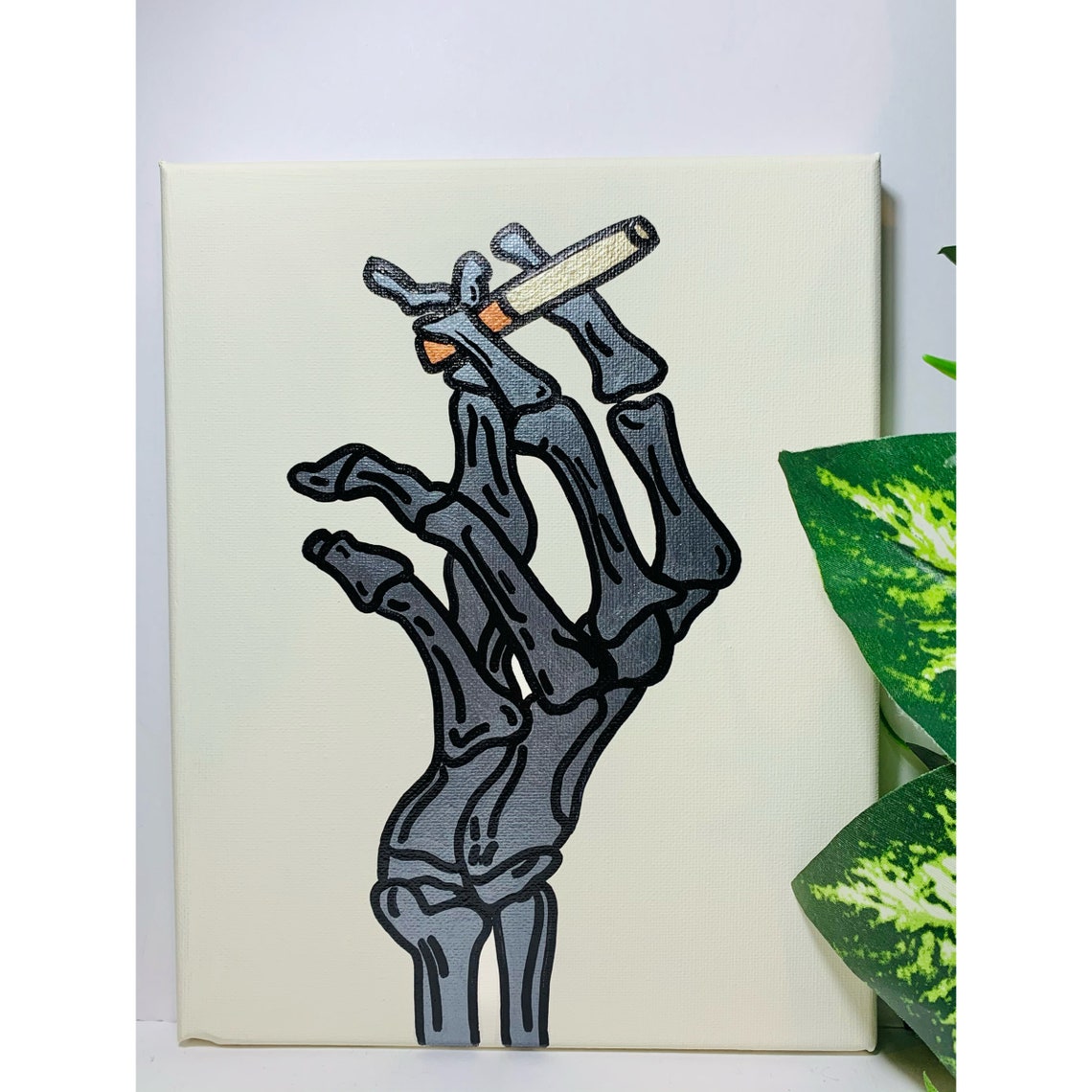
Abstract Smoking Skeleton holding a cigarette line art Etsy
The museum page comments that the burning cigarette was probably intended as a joke, perhaps also as a comment on conservative academic practice. Studies such as Female Nude, Standing, Seen from the Side F1699, where Vincent emphasises the thick-set features of the Brabant peasant women he was familiar with over the classic nude, attest Vincent.

Skeleton smoking cigarette hires stock photography and images Alamy
This skeleton with a lit cigarette in its mouth is a juvenile joke. Van Gogh painted it in early 1886, while studying at the art academy in Antwerp. The painting shows that he had a good command of anatomy. Drawing skeletons was a standard exercise at the academy, but painting them was not part of the curriculum.